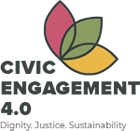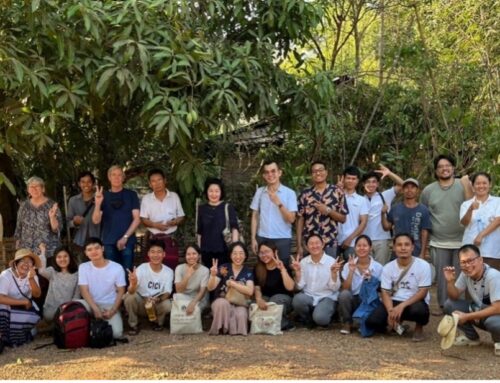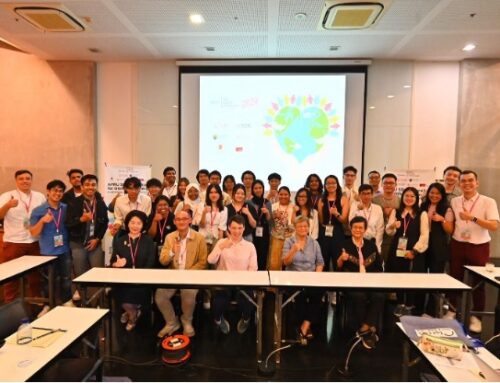2023 Staff Achievement Award in Diversity and Inclusion
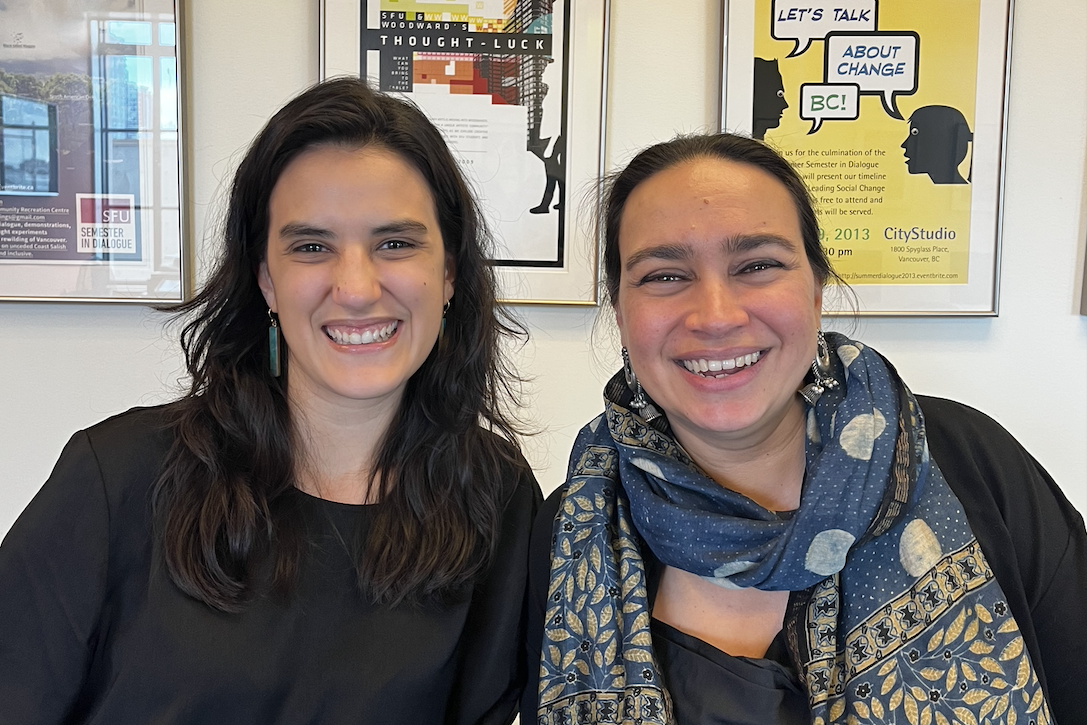
Elodie Jacquet (right)
The SFU Morris J. Wosk Centre for Dialogue is honoured to participate in multi-dimensional work that amplify voices, propel meaningful dialogue and engage with various communities. Among the vibrant and innovative tight-knit team at the Centre for Dialogue, the Knowledge and Practice department have gone above and beyond to demonstrate how dialogue can lead to building meaningful movements and transformative change.
In recognition of the extensive work that went into the development and mobilization of the practitioner guide Beyond Inclusion: Equity in Public Engagement, Manager, Elodie Jacquet and Senior Analyst, Nicole Armos have been awarded the 2023 SFU Staff Achievement Award for Diversity and Inclusion. Having had the pleasure of speaking with both Elodie and Nicole about their experiences surrounding the Beyond Inclusion guide and their roots at the Centre, it is apparent just how deeply this work has resonated with them.
With a background in public policy and biology, Elodie Jacquet made her debut at the Centre a number of years ago as they took on the largest deliberative dialogue with citizens ever attempted in Canada — Canada’s World. This experience was her introduction to deliberative citizen’s dialogues and transformed her perception of what she wanted to do with her life. The current focus of her work revolves around how to build equity and inclusion in deliberative processes to support stronger and more resilient democracy.
Identifying as an immigrant herself, ensuring that missing voices are heard is central to her work. The opportunity to give these voices agency in the decision-making process remains at the core of why she has loved working with the Centre for so long. In the work that she has done and continues to do, Elodie reinforces that dialogue at its core is about humanizing people. If we are able to use this tool well, it is extraordinary. She was witness to many extraordinary moments when dialogue was used as it should be, and hopes it remains a central element of the work that is done at the Centre.
“It’s critical to design from those most impacted up, instead of designing from those who hold most power down,” says Elodie.
Seeing the Beyond Inclusion guide launch has been a deeply fulfilling experience for Nicole Armos, as were the many opportunities for co-creation in the project. Nicole was introduced to the Centre back in 2011 when she was a student in that year’s Semester in Dialogue cohort, and joined the Knowledge and Practice office in 2018, with the Beyond Inclusion project launching soon after. During her time at the Centre, Nicole has been at the core of other equity-focused work such as the Summer Institute, Perspectives on Reconciliation which aimed to accelerate reconciliation work throughout the post-secondary sector in Canada. Both Nicole and Elodie also supported the National Inquiry into Missing and Murdered Indigenous Women & Girls, for a series of four guided dialogues which contributed to the final report. As a recent mother of two, Nicole is excited to see how this new identity shapes her work and her passion for dialogue and building community.
Four letters from rescued victims can also be found detailing their personal experiences and the uncertainties and struggles they faced as trafficked victims. These letters provide the reader a personal, inside report, highlighting the issues of the sea-food industry and forced labour.
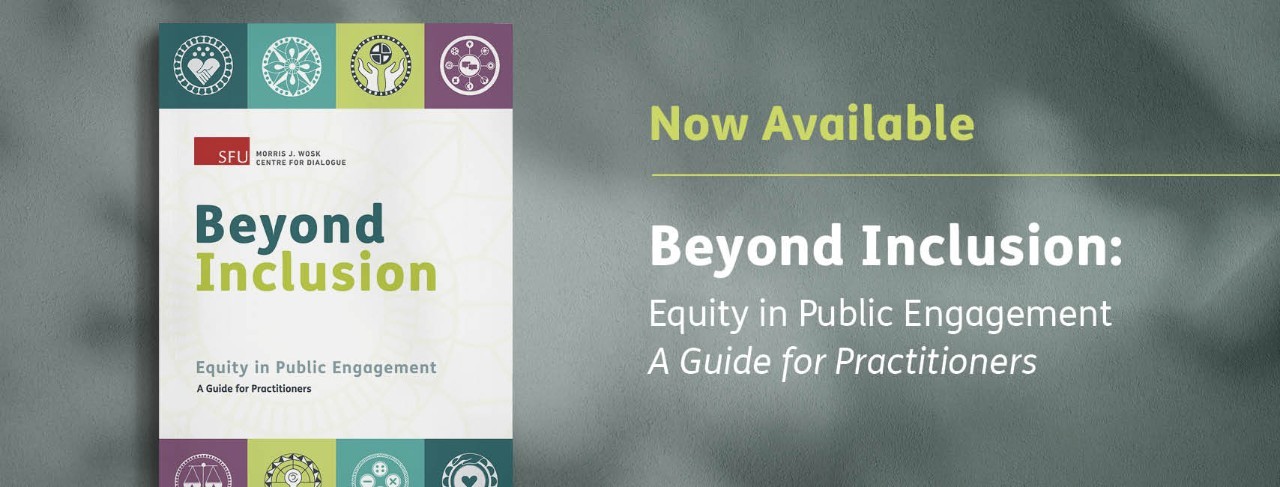
Under Elodie and Nicole’s guidance, the Beyond Inclusion project evolved from an initial short paper on inclusion in public participation into an iterative process that included participatory research through a series of dialogues with individuals from diverse sectors and cultural and socio-economic backgrounds.
Through the various stages of this project, Elodie and Nicole wanted to ensure that community participation remained central—for instance by making space for community leaders to co-create and facilitate dialogues, and inviting 11 practitioners and community members to peer-review the final draft. During the COVID-19 pandemic the team was able to mobilize the project internationally through virtual webinars. The Beyond Inclusion guide has now been incorporated into post-graduate curriculum as far as New York and Australia, and recently helped inform the City of Victoria’s updated municipal engagement strategy.
In the spirit of the co-creation that were core to this project, Elodie and Nicole extend the recognition from this award to the many people who contributed to the success of the Beyond Inclusion guide, with particular gratitude to Grace Eunhye Lee and Centre for Dialogue Fellows Dr. Robert Daum, Ginger Gosnell-Myers, and Dr. Diane Finegood; Associates Cicely Blain and Joanna Ashworth; and design support from Sabrina Azaria and Sandeep Johal.
